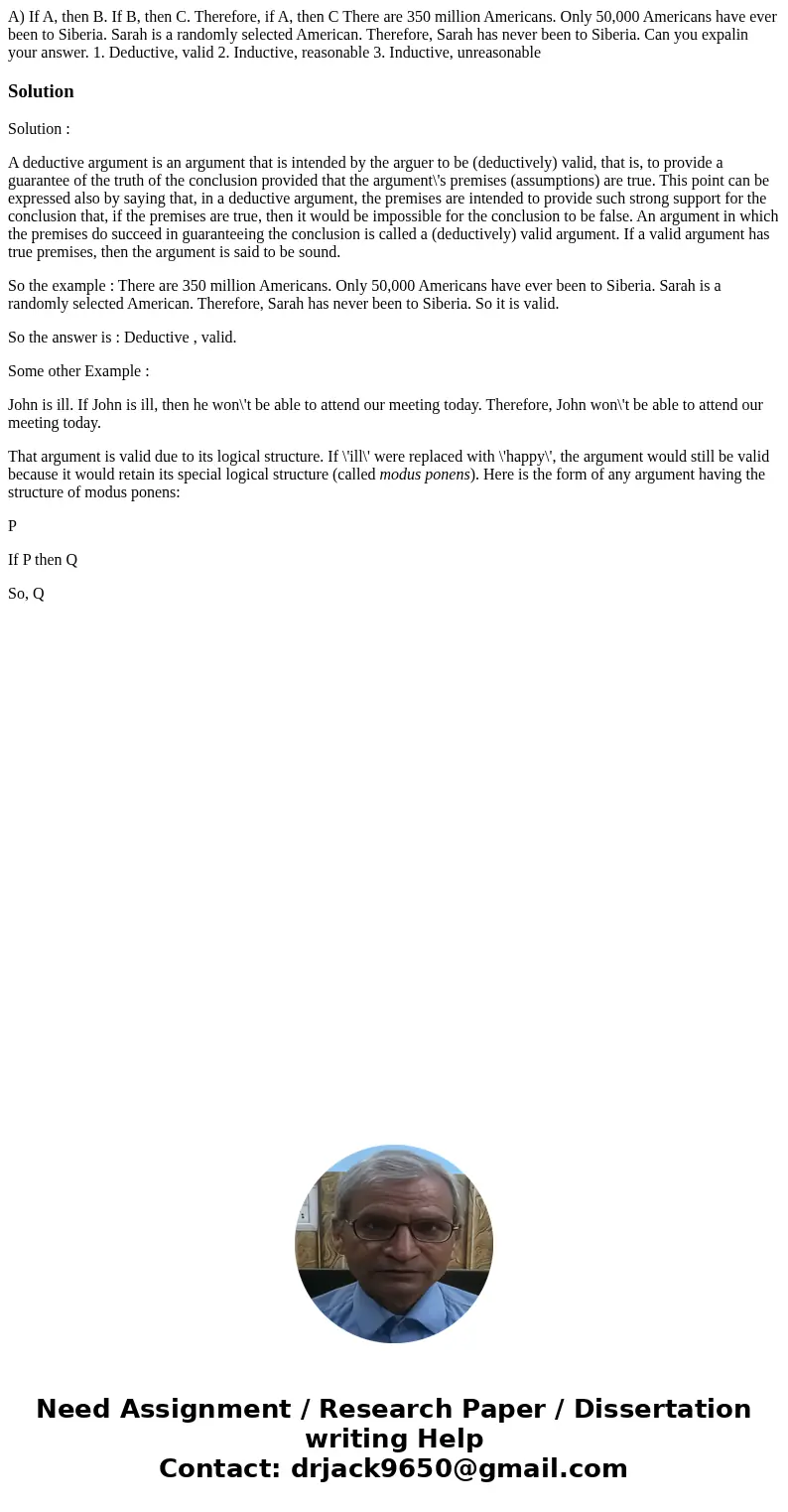A If A then B If B then C Therefore if A then C There are 35
A) If A, then B. If B, then C. Therefore, if A, then C There are 350 million Americans. Only 50,000 Americans have ever been to Siberia. Sarah is a randomly selected American. Therefore, Sarah has never been to Siberia. Can you expalin your answer. 1. Deductive, valid 2. Inductive, reasonable 3. Inductive, unreasonable
Solution
Solution :
A deductive argument is an argument that is intended by the arguer to be (deductively) valid, that is, to provide a guarantee of the truth of the conclusion provided that the argument\'s premises (assumptions) are true. This point can be expressed also by saying that, in a deductive argument, the premises are intended to provide such strong support for the conclusion that, if the premises are true, then it would be impossible for the conclusion to be false. An argument in which the premises do succeed in guaranteeing the conclusion is called a (deductively) valid argument. If a valid argument has true premises, then the argument is said to be sound.
So the example : There are 350 million Americans. Only 50,000 Americans have ever been to Siberia. Sarah is a randomly selected American. Therefore, Sarah has never been to Siberia. So it is valid.
So the answer is : Deductive , valid.
Some other Example :
John is ill. If John is ill, then he won\'t be able to attend our meeting today. Therefore, John won\'t be able to attend our meeting today.
That argument is valid due to its logical structure. If \'ill\' were replaced with \'happy\', the argument would still be valid because it would retain its special logical structure (called modus ponens). Here is the form of any argument having the structure of modus ponens:
P
If P then Q
So, Q

 Homework Sourse
Homework Sourse